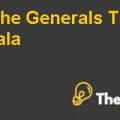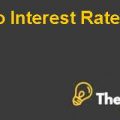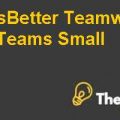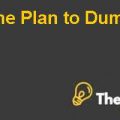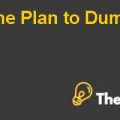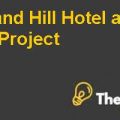
Introduction
“Facebook” is a common social networking website which is designed to connect with friends, families and business allies. The main goal of this website is to build the social network among the people who share their views among their friends or entire world, with the help of internet facilities. Facebook was initially started by the four students of the Harvard University to share their connectivity among the university Alumni. Further, the owner of the Facebook moved towards expansion side for growing this website as their theme of the business. Currently it is one of the largest social networking sites having competition with other famous sites such as Google+ and Twitter.
Now the environment has changed very much and the company wants to move towards the Initial Public Offering side. In that they had many challenges faced with respect to finances. The main aim is to analyze the Facebook data of the financial of the first quarter of 2012 with respect to the Initial Public offering. By analyzing the data which is given in the report of Facebook shows that the IPO was initiated with good sound, but after market sentiments it would go to decline, but still they are more positive hand. The lesson learn from the IPO is that taking the company to IPO is a more challenging process and give the idea that it's more towards the science not an art basis. The valuation method should be based on discounted cash flows and multiple analysis, which provide the profitability onthis type of business. Moreover, it also gives the suggestion that how to overcome the conflicts which arises from the stakeholders perspectives. The last advice is a law word says that “let the buyer beware” means that the users should be aware about its criteria of the works.
- 1. When did Facebook first “go live”? What was the name of the company based on?
- Facebook had gone live in the year 2004 by the students of Harvard University. Basically, there were five students, in which Mark Zuckerberg, who actually invented the Facebook and others were the room-mates. The company name was based on the social utility of the friends to connect with each on a single platform.
- Furthermore, the reason for doing this connectivity was to share their photos and comments among the friends over the internet. Mr. Mark had initially started a Facebook through a run-in of Harvard administration. Afterward, he moved to Palo Alto, California for expanding its business. His first investor was PayPal co-founder by the mid of 2006.
- The Facebook attracted most of the people who were youngsters, job persons and other house & business committees. Basically, Facebook is an internet platform that endorses the users to share their comments, likes and photos with friends and family.
2. What is advertising based on social context?
- The advertising based on social context means that advertiser can target custom-made product and services based on the users` fondness and networks. They set their trigger according to the Facebook users like and dislike. These things have more importance in the eye of their management, because they know that if the user will be satisfied, then it would automatically effect on the growth of the enterprise.
- Further, they believe that advertising on the basis of social context will be better perceived in the customer attention and their future response. This would effect on the growth of the revenue which has more importance for any business perspective.
3. What is Zuckerberg’s effective voting control following the IPO? Briefly describe how this was structured using information in the S-1.
- According to the structure of Form S-1, Mr. Zuckerberg has held the controlled over the voting power approximately 55.8% in the capital stock. The voting control has been divided into two sides, one is for common stock “A” and second for common stock “B”.
- Moreover, the common stock A has voting power which is equal to its share means that one stock is equal to one voting power. On the other hand, the second class having ten voting power over one share. This is basically that he developed the effective voting control with respect to IPO. In the class one, he issued 180,000,000 shares of the common stock while in the second classthe share were 241,233,615.
They anticipate the price of the IPO will be in the range of the $34 to $38. Furthermore, they had granted the underwriters the rights to purchase up to extra shares of class A of the common share which is 63,185,042....................
This is just a sample partial case solution. Please place the order on the website to order your own originally done case solution.
Facebook in more than one billion users per month, in October 2012, online social networks continue to face questions about how best to monetize the growing traffic. The company can continue to invest in new advertising products that represented the majority of revenue so far, or to concentrate on the Facebook platform, and to help third-party developers to create and distribute their own applications. After a welcome still largely disappointing initial public offering (IPO), stock price of Facebook, has been steadily declining. It was critical for the team Facebook, to identify opportunities for sustainable growth, in particular, more of its user base to access the site through mobile devices. "Hide
by Mikolaj Jan Piskorski, Thomas R. Eisenmann, David Chen, Brian Feinstein, Aaron Smith Source: HBS Premier Case Collection 41 pages. Publication Date: March 18, 2008. Prod. #: 808128-PDF-ENG

